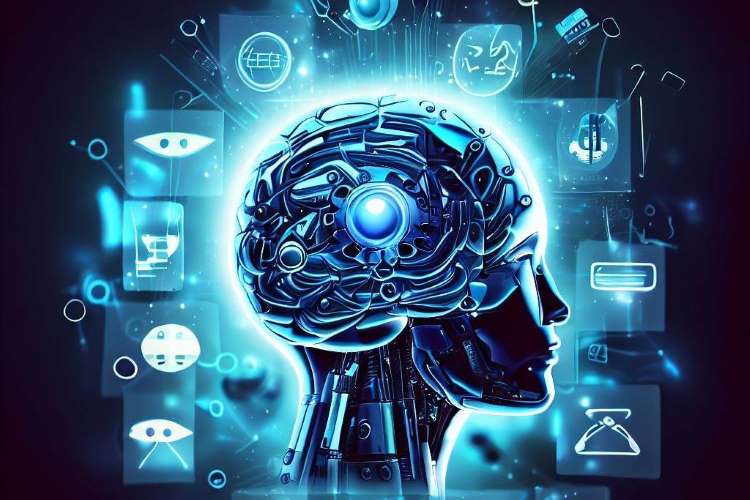
India has launched a new AI Mission to enhance the nation’s artificial intelligence capabilities. Prime Minister Narendra Modi on Tuesday announced the rollout of the mission though specific dates are yet to be confirmed. The mission focuses on supporting startups and promoting AI applications in agriculture, healthcare, and education. The announcement coincided with the inauguration of the Global Partnership on Artificial Intelligence Summit. The three-day event brings together officials from member countries and experts to discuss AI developments. The 29 member countries of GPAI have unanimously adopted the New Delhi declaration.
This announcement follows the NITI Aayog’s #AIforAll initiative which sought to establish a National Programme on AI. The Indian think tank, guided by the 2018-19 budget speech directive, was tasked with steering new and emerging technologies. The previous mission focused on academia-industry collaborations and research, establishing INDIAai (The National AI Portal of India) as a repository and digital platform for the national AI programme.
READ | Experts split over draft national cooperative policy
AI Mission 2023
The latest AI Mission introduces several key developments. The government plans to utilise the existing network of Industrial Training Institutes to foster AI skills in tier-II and tier-III cities. The mission also seeks to boost India’s AI computing power, benefiting startups and innovators. Additionally, India intends to deploy AIRAWAT, an AI-based cloud computing infrastructure, for domestic startups, research labs, and industry players.
While India’s new AI Mission boasts of ambitious goals, translating them into tangible progress requires a robust implementation roadmap. The government’s plans to leverage existing ITI networks for tier-II/III city skill development are commendable, but further details on the types of training programmes, partnerships with private companies for infrastructure, and specific funding allocations are crucial to ensure their effectiveness. A clear roadmap with concrete initiatives will inspire confidence and pave the way for smoother execution.
This follows the government’s adoption of a report from an expert panel recommending the creation of a computing infrastructure with 24,500 graphics processing units (GPUs) across 17 centres, to stimulate innovation by startups and academia. The proposal includes 14,500 GPUs for AI model training and high-performance storage, with the remaining 10,000 for AI inferencing. However, the government has not specified the compute power allocation under the mission.
Prime Minister Modi highlighted the necessity of regulating AI, calling for a global framework to manage the technology. This echoes previous calls for shared rules to ensure AI’s ethical use. The Prime Minister also emphasised a cautious approach to AI, acknowledging potential risks, including its weaponisation by non-state actors. World leaders advocate for transparent, unbiased data and algorithms to democratise AI.
Embracing the transformative potential of AI necessitates acknowledging its potential pitfalls. Concerns around data privacy, job displacement, and algorithmic bias cannot be ignored. The mission should outline strategies to mitigate these challenges, such as establishing robust data protection laws, promoting reskilling initiatives for displaced workers, and implementing frameworks for ethical AI development and deployment. Addressing these concerns upfront will foster trust and ensure AI benefits everyone, not just a select few.
In line with this, Union Minister for Electronics and Information Technology Ashwini Vaishnaw mentioned ongoing negotiations for a multi-country AI declaration at the summit, seeking a global consensus on AI governance. This declaration is expected to echo the principles of the Bletchley Declaration, established at the UK AI Safety Summit, promoting responsible and trustworthy AI use.
Countries and blocs worldwide are striving to lead in AI. The European Union, for instance, seeks to set global AI standards and foster skills and research investment. AI investment in India surged by 109.6% in 2018, reaching $665 million, with projections showing continued growth. NITI Aayog estimates that AI could add $1 trillion to India’s economy by 2035.
India’s AI aspirations are not in isolation. The world is teeming with fierce competition with players like the EU and China vying for dominance. While India’s focus on agriculture, healthcare, and education is commendable, a nuanced understanding of competitors’ strengths and areas of overlap is crucial. Collaborating with like-minded nations while also forging its own unique path will be essential for India to emerge as a true leader in the global AI race. By actively engaging with the international community, sharing best practices, and leveraging its unique strengths, India can not only address its own challenges but also contribute to shaping a responsible and inclusive future for AI.
Prachi Gupta is an Assistant Editor with Policy Circle. She is a post graduate in English Literature from Lady Shri Ram College For Women, Delhi University. Prachi started her career as a correspondent with financialexpress.com. She specialises in policy impact studies.


